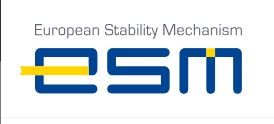Directive 2009/52/EC targets the employment of non-EU nationals who are illegally staying in the European Union (EU), in order to counteract illegal immigration. It provides for minimum common standards on sanctions and other measures (disqualification from public benefits, etc.) and, in serious cases, criminal penalties against employers of said nationals.
Advertisement
ACT
Directive 2009/52/EC of the European Parliament and of the Council of 18 June 2009 providing for minimum standards on sanctions and measures against employers of illegally staying third-country nationals.
SUMMARY
The directive requires Member States to prohibit the employment of illegally staying non-EU nationals. It lays down common minimum standards on sanctions against employers who infringe the prohibition. Member States may decide not to apply the directive to illegally staying non-EU nationals whose removal has been suspended and who have been granted permission to work under national law.
Employers obligations
Employers are obliged to:
* require non-EU nationals to produce a residence permit or another authorisation to stay before taking up employment;
* keep copies of the permit or authorisation for the duration of the employment, in case of inspection by the national authorities;
* notify the authorities within the period established by the Member State when they employ a non-EU national.
In cases where the employer is an individual who engages a non-EU national for private purposes, Member States may provide for a simplified procedure of notification. Member States may decide not to require notification when the non-EU national has been granted long-term residence status.
Sanctions
Member States must ensure that infringements are subject to effective, proportionate and dissuasive sanctions, including:
* financial sanctions in relation to each illegally employed non-EU national;
* payment of the costs for returning the illegally employed non-EU nationals.
The financial sanctions may be reduced for individuals employing illegally staying non-EU nationals for private purposes, provided that the working conditions were not exploitative.
Member States must ensure that employers are liable to make back payments, such as outstanding remuneration, including the cost of sending it to the employees country of origin, and social security contributions. To calculate the back payments, the employment relationship is presumed to have lasted for at least three months unless proved otherwise.
Member States must put in place the necessary mechanisms whereby illegally employed non-EU nationals may claim any outstanding remuneration from their employers. The non-EU nationals must be informed of their rights before their return is enforced.
Member States must ensure that employers are also, if appropriate, subject to other measures, such as:
* exclusion from entitlement to some or all public benefits, including EU funding for up to five years;
* exclusion from participation in a public contract for up to five years;
* recovery of benefits granted up to 12 months prior the detection of the illegal employment;
* temporary or permanent closure of the establishment.
Member States must also ensure that where an employer is a subcontractor, the contractor of which the employer is the direct subcontractor will be held liable in addition to or in place of the employer. However, contractors that have undertaken due diligence obligations defined by national law will not be liable. Member States may also provide for more stringent liability rules in relation to subcontracting.
An intentional infringement constitutes a criminal offence when the employer:
* persists in his/her non-compliance;
* employs a significant number of illegally staying non-EU nationals;
* employs such persons in particularly exploitative working conditions;
* employs victims of trafficking in human beings;
* illegally employs minors.
Inciting, aiding and abetting this conduct must also constitute a punishable criminal offence.
Criminal sanctions may be accompanied by other measures, including publication of the judicial decision. Legal persons can also be held liable.
Complaints and inspections
Member States must ensure that illegally employed non-EU nationals can lodge complaints against their employers either directly or through designated third parties. Those working in particularly exploitative conditions may be issued residence permits for the duration of their proceedings on a case-by-case basis, under arrangements comparable to those provided for by Directive 2004/81/EC on the residence permit issued to third-country nationals who are victims of trafficking in human beings and who cooperate with the competent authorities.
Member States are required to carry out effective and adequate inspections based on regular risk assessments to control the employment of illegally staying non-EU nationals.
Background
The Commission suggested these measures in its communication of 19 July 2006 on policy priorities in the fight against illegal immigration. The European Council (15-16 December 2006) endorsed this suggestion, inviting the Commission to present proposals.
REFERENCES
Directive 2009/52/EC
Entry into force: 20.7.2009
Deadline for transposition in the Member States: 20.7.2011
Official Journal: OJ L 168 of 30.6.2009







